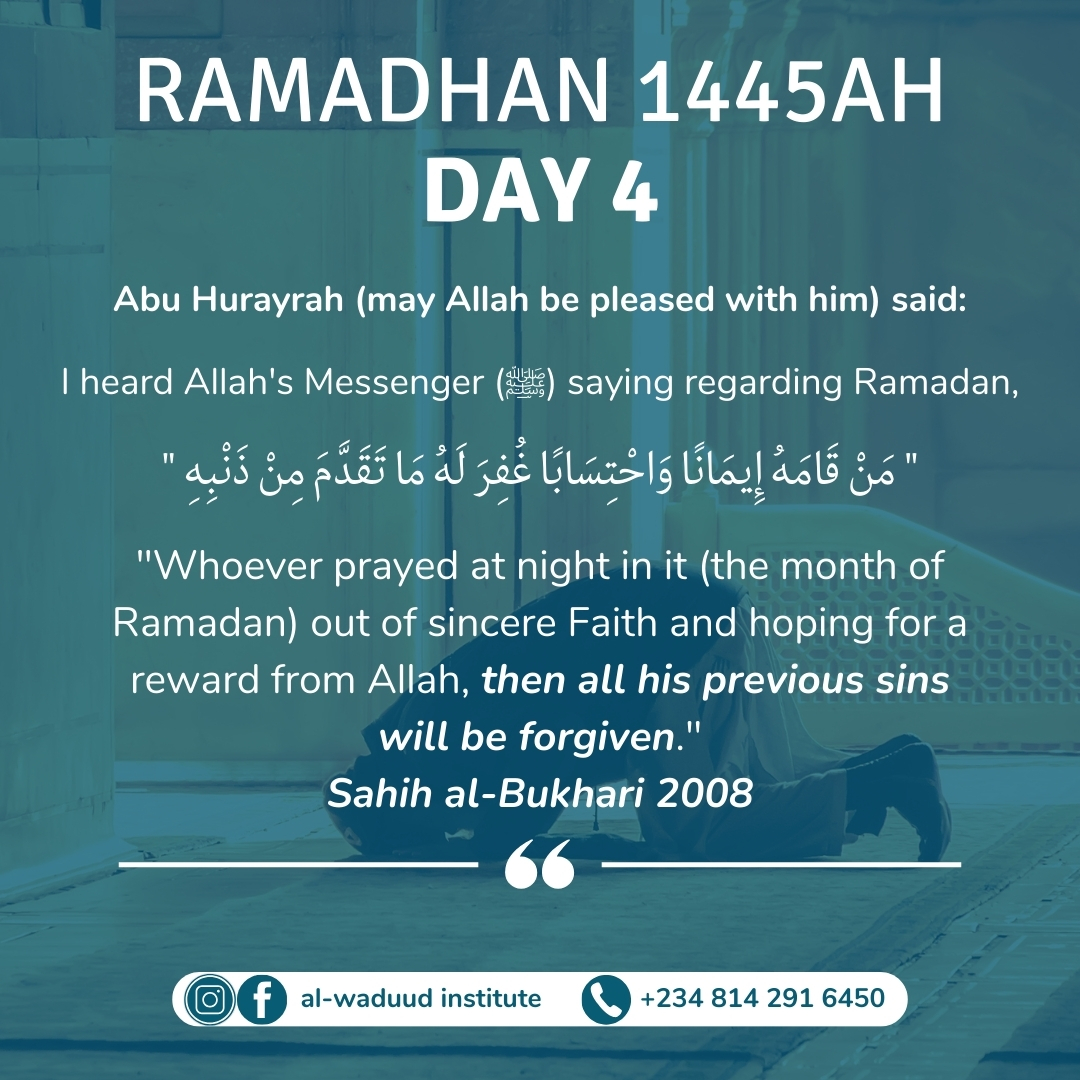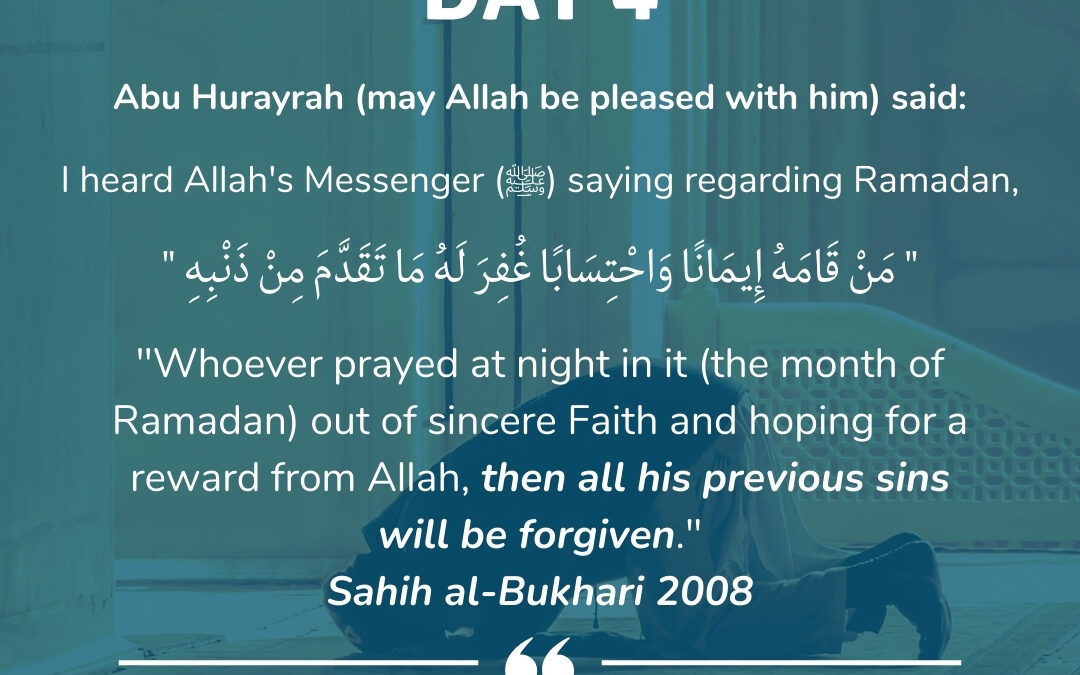Abu Hurairah (may Allah be pleased with him) said:
I heard Allah’s Messenger (ﷺ) saying regarding Ramadan,
“ مَنْ قَامَهُ إِيمَانًا وَاحْتِسَابًا غُفِرَ لَهُ مَا تَقَدَّمَ مِنْ ذَنْبِهِ ”
“Whoever prayed at night in it (the month of Ramadan) out of sincere Faith and hoping for a reward from Allah, then all his previous sins will be forgiven.”
Sahih al-Bukhari 2008
This hadeeth is indicative of the virtue of praying qiyaam in Ramadaan, and shows that this is one of the means of forgiveness of sin. Whoever prays Taraaweeh as it should be prayed has prayed at night (qiyaam al-layl) in Ramadaan.
Forgiveness is conditional upon “faith and hope of reward,” as stated here.
What is meant by “faith” is that when the person stands to pray qiyaam, he believes in Allaah, may He be exalted, and believes in His promise and in the virtue of praying qiyaam, and in the greatness of its reward with Allaah.
“Hope of reward” means that he is seeking the reward from Allaah and is not doing it for any other purpose such as showing off, etc.
It was narrated that Abu Hurayrah (may Allaah be pleased with him) said: The Messenger of Allaah (peace and blessings of Allaah be upon him) used to encourage them to pray qiyaam during Ramadaan, without commanding them to do it. Then he said: “Whoever prays at night in Ramadaan out of faith and in the hope of reward, his previous sins will be forgiven.”
So the Muslim should be keen to pray Taraaweeh, and should be patient in completing the prayer with his imam. He should not neglect any part of it, or leave before his imam, even if his imam does more than eleven or thirteen rak’ahs, because the Prophet (peace and blessings of Allaah be upon him) said: “Whoever prays qiyaam with the imam until he finishes, it will be recorded that he spent the night in qiyaam.”
It is only a few nights, which the wise man makes the most of before they are gone.

